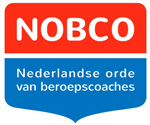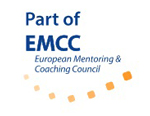Mentoring
Mentoring is a development process where an employee (or manager) is accompanied by a more experienced person. This mentor helps achieve specific professional competencies or goals.
Mentoring, an important part of ‘workplace coaching’, is an individual approach that focuses on both personal and professional development. The program contributes to better results by increasing the sustainable employability and well-being of employees and managers. It helps retain talent, prevent downtime, and promotes the growth of both employees and executives.
Powerful HR tool for developmentMentoring
is a powerful HR tool for development and growth and is not self-evident for all employees. It is particularly useful for employees who are self-employed professionals, such as remote workers and (start-up) managers. It is also a valuable addition to the management style of "Coachend Leadership", with the aim of promoting employee independence, responsibility and self-reflection.
Hands-on
Mentoring is very practical. It's about people learning to apply their theoretical knowledge in all kinds of practical situations. This may include experiences with customers, but also dealing with direct and indirect colleagues. Working in a team is something that people sometimes find very difficult. The solution is personal to everyone, but it often has to do with the way they communicate. The organization culture is also of great influence. Working as a remote worker from a distance from the company can be difficult. Another person has difficulty working as a manager in a foreign company, such as a hotel. The use of mentoring can then help by, for example, discussing difficult situations in substance and addressing them together. The work-life balance is also a topic that is often discussed.
Preparing employees for mentoring.
Not only managers need to learn how to mentor, employees will also need to do work to benefit from mentoring. Both need to understand their personal and professional goals. In addition, they must show a willingness to look critically at their own behavior and performance. Furthermore, mentoring requires active commitment and involvement of those involved.
Mentoring for more professionality.
Mentoring is a valuable tool for organizational development. Careful implementation and selection of the right mentor are essential to the success of the program. Managers and/or HR Advisors should be aware of the differences between internal and external mentors and develop a strategy that is appropriate to the specific needs and goals of their organization and the people who work there.




